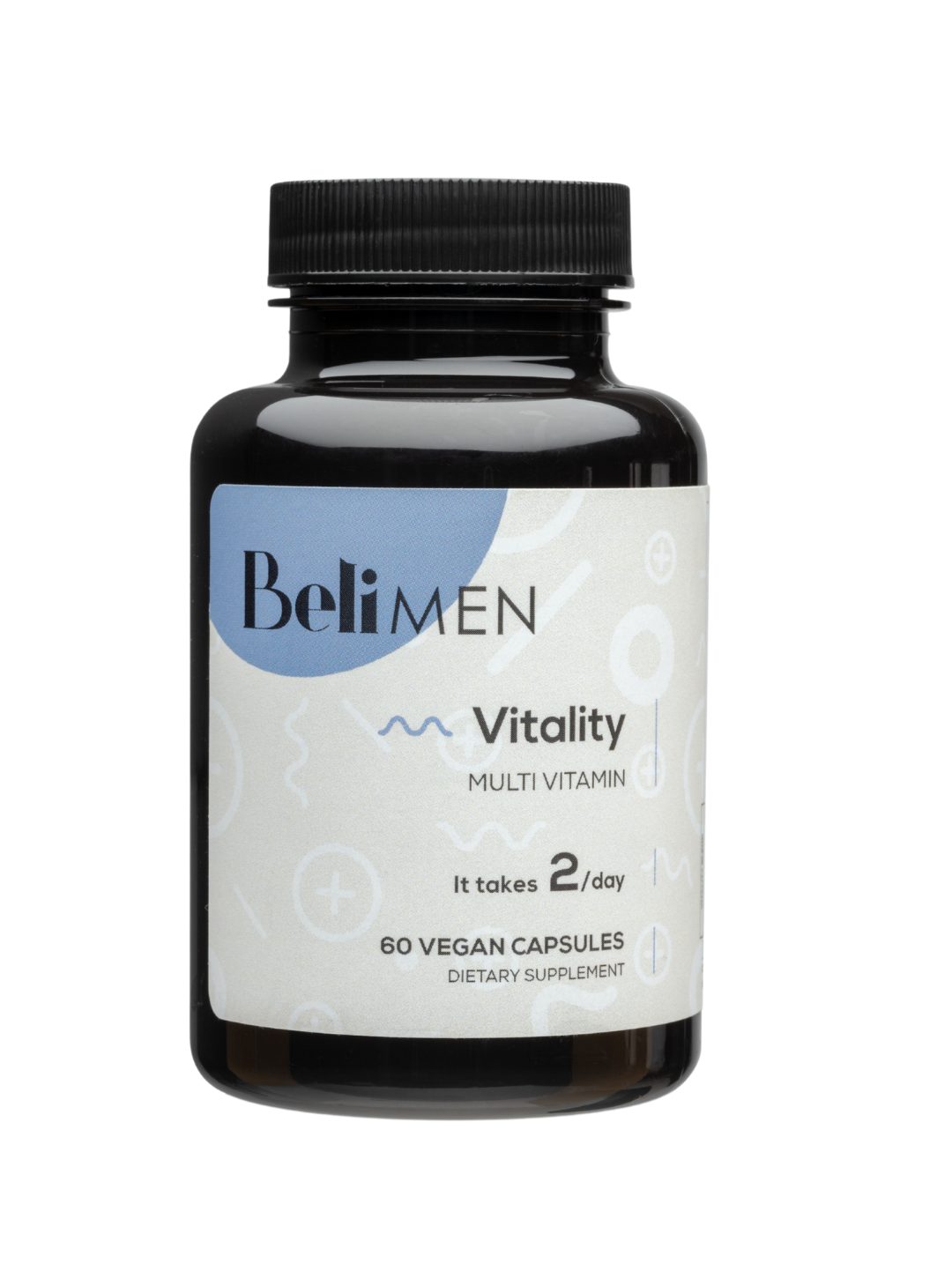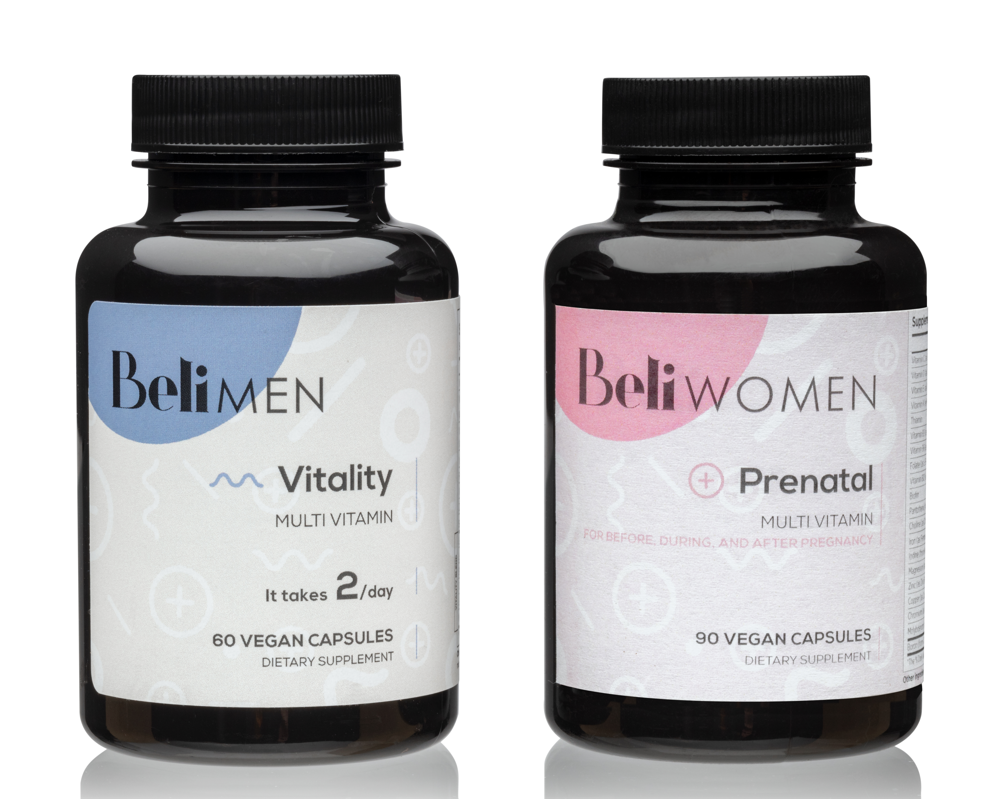Sky high temperatures are the norm for most of us during the summer, and keeping cool is priority number one. For men hoping to become fathers, managing temperature is a particular concern. Male fertility is intrinsically tied to the production of healthy sperm, and external factors like nutrition, activity level, sleep quality, hormonal balance and environmental conditions play key roles. If you already know that boxers are often recommended over briefs when a man is hoping to conceive with a partner, you probably also know that heat can indeed be an issue. As temperatures creep upward, here’s what to know about summer heat and its effect on sperm health.
Key Takeaways
- The sperm maturation process is a delicate process that’s heavily influenced by external factors—including heat.
- Excessive heat exposure can be detrimental to all sperm parameters, from count and concentration to motility and morphology.
- To manage heat and support male fertility, wear loose-fitting clothes, seek the shade, hydrate properly and avoid prolonged time spent in artificial heat, like hot tubs and saunas.
A Look At Spermatogenesis
To understand why heat is detrimental to sperm, let’s back up to review the sperm maturation process itself. The average healthy male produces millions of new sperm every day, but in preparation for fertilization, each must undergo a key maturation process known as spermatogenesis. It takes roughly three months, and it’s during this window that sperm become fully functioning after moving through three key phases. It’s a complex and delicate process that’s heavily influenced by modifiable lifestyle factors. Nutrients are a big one (1), and heat can be damaging as well.
Healthy sperm is measured by a few key parameters:
- Sperm count: This is the number or concentration of sperm cells in a given amount of semen. Normal semen has 40 million to 300 million sperm per milliliter. A low sperm count—also known as oligospermia—is between 10 and 20 million sperm per milliliter. Important note here: even 20 million sperm per milliliter can be enough for pregnancy if the sperm are otherwise healthy.
- Sperm morphology: Normal sperm have egg-shaped heads and long tails, which is an ideal for making the three-part journey from the vagina to the cervix and uterus to the fallopian tubes. Sperm use their long tails to “swim” to the egg. The more normal-shaped sperm a man has, the easier it will be for them to reach the egg.
- Sperm motility: The ability to swim is an essential function of a healthy sperm cell. Sperm motility is measured as the percentage of moving sperm cells in a sample of semen. Healthy sperm motility is defined as sperm with forward progressions of at least 25 micrometers per second. Poor sperm mobility is known as asthenospermia or asthenozoospermia. Sperm motility issues include slow or sluggish progressive motility, non-progressive motility (defined as anything less than 5 micrometers per second) and no mobility.
- Testosterone levels and hormonal balance: The precise balance of hormones in a man’s body determines the success of the male reproductive system. This includes producing enough testosterone, follicle-stimulating hormone (FSH) and luteinizing hormone (LH).
What Does Excessive Heat Do To Sperm?
The optimal temperature for the testicles during spermatogenesis is 2 to 4 degrees C lower than body temperature. Heat stress drives testicular tissue temperature up, and it’s evident in the quality of sperm. Research shows that prolonged heat exposure, such as during a heat wave, can wreak havoc on key aspects of spermatogenesis (2) through decreased mitochondrial activity and by slowing down the entire process, leading to issues like:
- Decreased sperm volume and reduced sperm count
- Impaired sperm motility
- Dysfunctional sperm morphology
According to researchers in a meta-analysis of nine scientific articles relating to the impact of high ambient temperature on semen parameters (3), “heat stress is considered to be the most influential cause of reproductive function in mammals.” Their conclusion was direct: “There is an urgent need to make recommendations and strategies to protect the health of people living or working in high-temperature environments, especially the reproductive health of males.”
How To Manage Heat For Sperm Health
Here at Beli, we’re staunch believers that knowledge is power. By understanding the issue high heat exposure poses to a man trying to become a father, it’s possible to take steps to reduce risks and support fertility health. And it’s not as hard as you may think!
1. Dress for the heat. Skip the tight underwear and pants. When it’s hot, wear loose-fitting, breathable clothing that allows the air to circulate.
2. Skip the hot tubs, saunas and hot springs. Artificial heat from hot tubs, baths, saunas and hot springs can have the same negative effects as ambient heat, so limit your time spent in these places.
3. Hydrate, hydrate, hydrate. Staying properly hydrated helps regulate body temperature (and it’s important for your health), so make sure you’re drinking plenty of water.
4. Limit exposure whenever possible. Like the hot tub, do your best to limit your time in the heat. Whenever possible, try to hang in the shade, use fans or air conditioners, and if you’re working outdoors, take frequent breaks to cool down afterward with a cold shower or a swim. And check out our post on cold plunging as it relates to male fertility.
5. Manage exercise intensity. Adjust workout intensity according to the temperature. Exercise during cooler parts of the day, such as early morning or late evening, and take breaks to cool down.
6. Use cooling devices. Consider using cooling devices like fans, cooling packs, or even specially designed underwear that helps maintain optimal scrotal temperature.
Don't overlook other best practices when the temperature is high, either. When outdoors, seek shade whenever possible. This can help prevent overheating and reduce overall body temperature. And don't forget the SPF!
Men concerned about their fertility should also consider regular check-ups with a healthcare provider. A semen analysis can help monitor sperm health and catch any issues early. In addition to managing heat exposure, maintaining a healthy lifestyle can support fertility. A balanced diet rich in antioxidants, vitamins, and minerals can protect sperm from oxidative stress caused by heat. Foods high in zinc, selenium, and folic acid are particularly beneficial. Avoiding smoking, excessive alcohol consumption, and managing stress are also crucial for maintaining healthy sperm production.
The Bottom Line
The summer heat really can have a temporary effect on male fertility, so doing what you can to keep cool, especially if the goal is becoming a dad, is really important. You should pair that with other best practices, from balanced nutrition to regular exercise to stress management. And don’t forget the men’s prenatal vitamin! It’s an easy way to get a steady stream of high-quality nutrients that support sperm health, and the two-capsule daily serving of Beli Vitality for Men pairs nicely with a tall glass of ice-cold water.
Resources
- Skorachaka, K et al. (2020). Diet and Nutritional Factors in Male (In)fertility—Underestimated Factors. https://www.ncbi.nlm.nih.gov/pmc/articles/PMC7291266/
- Deng, X et al. (2023). Heat wave exposure and semen quality in sperm donation volunteers: a retrospective longitudinal study in south China. https://pubmed.ncbi.nlm.nih.gov/37451571/
- Hoang-Thi A et al. (2022). The impact of high ambient temperature on human sperm parameters: a meta-analysis. https://www.ncbi.nlm.nih.gov/pmc/articles/PMC9288403/




